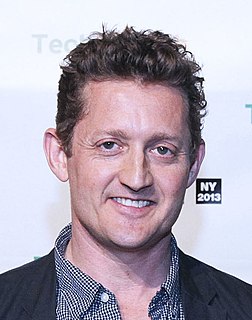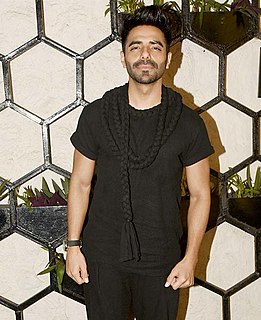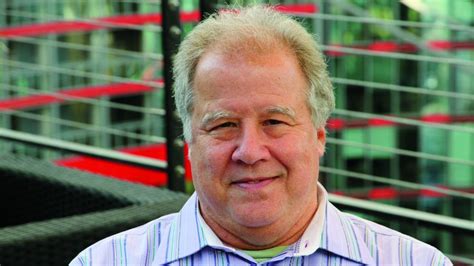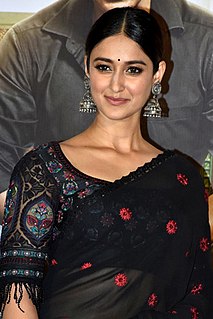A Quote by Alex Winter
With Fever, the film was so made for the screen, and there's so much surround sound that was done for the film - enormous detail paid to that. I wasn't thinking video, because I didn't know how it was going to turn out.
Related Quotes
I got into television criticism because I thought it would be easier than film criticism. Film, you had to know 100 years of history, and TV you only had to know 40 when I started. And I thought, "Well, that's going to be so much easier." But film stayed pretty much the same. And television has changed so many times that my head hurts. So I made the wrong call there.
You can rely on your team to do their jobs, but you have to carry the torch and do anything you need to, not just to shoot and finish, but to get the film seen. You have to know within yourself that you're going to have to take this. Don't sit back and think other people in your team are going to make it happen now because you've done your part. You have to carry that torch, and no one is going to care as much as you do, and nobody is going to live with it as long as you are because it's your film.
I think a lot of people go into filmmaking thinking, "How can I make a career?" And so when they make their first film, they make it thinking, "Well, this'll be the one that gets me to the place where I can make the second film the way I want to make it, and that'll get me to the place where I can make $100 million on the third film." And I thought, "Well, if I put sustainability at the bottom of my priority list, then what opportunities is that going to free me up to pursue?" And that's what I've always done.
Film’s thought of as a director’s medium because the director creates the end product that appears on the screen. It’s that stupid auteur theory again, that the director is the author of the film. But what does the director shoot-the telephone book? Writers became much more important when sound came in, but they’ve had to put up a valiant fight to get the credit they deserve.
I don't know that a movie like Doctor Strange couldn't have been the second or third film we made. I don't think we're doing anything in that requires past viewing, as opposed to Civil War which we wouldn't have done as the first or second movie because so much of that film is based on the pre-existing relationships between the characters.
I would make a huge distinction between theater improvisation and film improvisation. There isn't much improvisation in film - there's virtually none. The people that theoretically could be good at this in a theater situation don't necessarily do this in a film in a way that will work, because it's much broader on a stage. But in a movie, it has to be real, and the characters have to look entirely real because it's being done as a faux documentary, so there are even fewer actors that can do that on film.
I was really able to confirm something that I knew on some level before I'd made a film. The best actors know how to really relax. Because in film, a lot of the decisions are made in the editing room, so when you're trying to guide your performance too much - always it's a push and pull because you can't be too relaxed. Too relaxed and it's like, "What are you doing?" Too tense and it's not good either.




































